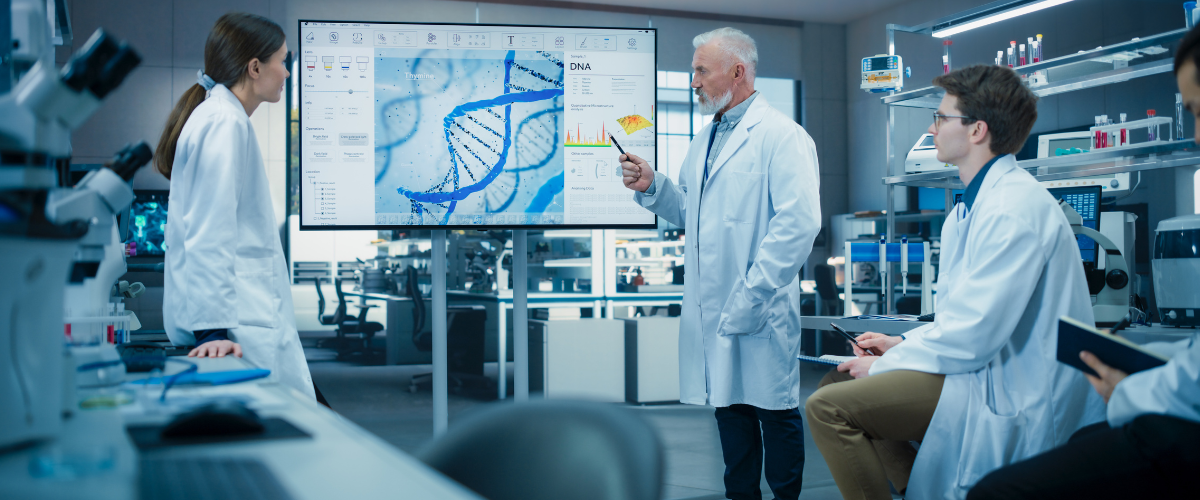As teachers guiding future healthcare professionals, it's essential to stay informed about emerging trends in medicine. Preparing students for a healthcare career isn't just about strong grades in science classes. The medical field is undergoing significant transformations, reshaping healthcare delivery and medical education.
Innovations in technology, preventive care, and globalized healthcare practices mean medical schools are shifting priorities. Understanding the fastest-growing medical careers can help you prepare students effectively.
Five Critical Trends to Watch in the Fastest-Growing Medical Careers:
1. Holistic Admissions Criteria
Medical schools today look beyond academics. The Association of American Medical Colleges (AAMC) emphasizes 15 core competencies medical schools consider during admissions. Interestingly, only six competencies relate to science and analytical thinking. The remaining nine emphasize interpersonal skills, such as communication, teamwork, empathy, and ethics.
Why is this important for teachers? Because these competencies suggest the need to foster soft skills and emotional intelligence in the classroom. Future doctors must not only excel scientifically but also relate empathetically to their patients. Encouraging teamwork, service projects, and communication skills in students now can position them strongly for medical school admissions later.
2. Rapid Advancements in Technology
Medicine is deeply intertwined with technology. Doctors use digital health records, remote diagnostics, robotic surgeries, and handheld devices daily. Medical schools increasingly incorporate technology into their curriculum, using virtual simulations to train students before real-world applications. Educators should expose students to technological advancements early, familiarizing them with simulation experiences, coding basics, or digital tools that mirror healthcare technologies.
Additionally, handheld ultrasound devices are becoming standard equipment for doctors, much like the traditional stethoscope. Teaching students to adapt quickly to new technologies will make them agile, future-ready healthcare providers.
3. Medical Humanities and Patient-Centered Care
There's a growing acknowledgment that healthcare is about more than treating symptoms; it's about caring for people comprehensively. Medical humanities programs, including studies in psychology, sociology, ethics, and cultural competence, are expanding in medical education.
Teachers can help students develop a broader understanding of patient care by integrating lessons that explore cultural awareness, ethical decision-making, and emotional literacy. Encouraging literature, arts, or social science projects focusing on human experiences can significantly enhance students' readiness for a patient-centered medical career.

4. Health Care Economics and Value-Based Care
Healthcare economics is rapidly becoming critical in medical education. Doctors must now justify treatments and procedures based on cost-effectiveness and patient outcomes. This shift requires future physicians to understand not only biology and chemistry but also the economics of healthcare.
Teachers can integrate economics into health-related discussions in science classes, helping students appreciate how healthcare costs and ethical considerations impact medical decisions. Real-world case studies or simulations on healthcare resource allocation can enrich students' understanding of these complex issues.
5. Public Health and Population Medicine
Public health is one of the fastest-growing medical sectors, emphasizing preventive care, population health, and global medical practices. Medical schools increasingly prioritize skills in epidemiology, social medicine, and behavioral health.
Teachers can support this trend by introducing students to public health concepts through real-world examples like managing disease outbreaks, vaccination campaigns, or community health initiatives. Encouraging participation in local health campaigns or community outreach projects can spark student interest in public health and preventive medicine careers.
Supporting Your Students' Medical Careers
WorldStrides is committed to preparing the next generation of healthcare leaders by providing experiential learning programs aligned with these fast-growing medical careers. Our immersive programs give students practical experience and insights into emerging healthcare fields, helping them gain the competitive edge required for medical school admissions and beyond.
By understanding and communicating these career trends, teachers can effectively guide students toward successful, impactful medical futures. Equip your students today for the dynamic healthcare landscape they'll enter tomorrow.
Envision by WorldStrides is passionate about guiding students each step of the way as they rise to their highest potential through transformative experiences. Our programs offer hands-on experiences that allow high schoolers to test the waters of possible career tracks in:
background-image: a building with the American flag in front of it